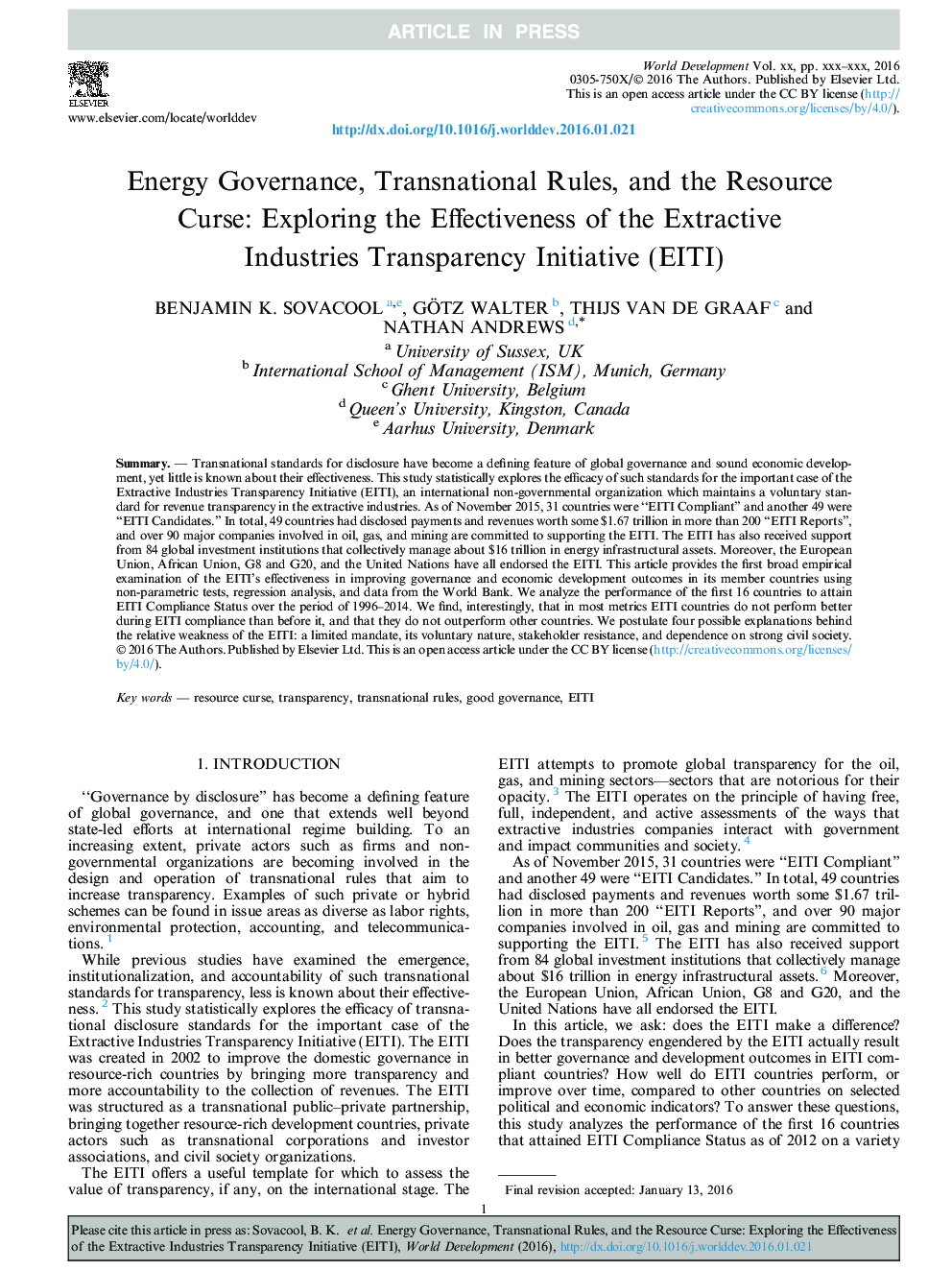| کد مقاله | کد نشریه | سال انتشار | مقاله انگلیسی | نسخه تمام متن |
|---|---|---|---|---|
| 7392712 | 1481135 | 2016 | 14 صفحه PDF | دانلود رایگان |
عنوان انگلیسی مقاله ISI
Energy Governance, Transnational Rules, and the Resource Curse: Exploring the Effectiveness of the Extractive Industries Transparency Initiative (EITI)
دانلود مقاله + سفارش ترجمه
دانلود مقاله ISI انگلیسی
رایگان برای ایرانیان
موضوعات مرتبط
علوم انسانی و اجتماعی
اقتصاد، اقتصادسنجی و امور مالی
اقتصاد و اقتصادسنجی
پیش نمایش صفحه اول مقاله

چکیده انگلیسی
Transnational standards for disclosure have become a defining feature of global governance and sound economic development, yet little is known about their effectiveness. This study statistically explores the efficacy of such standards for the important case of the Extractive Industries Transparency Initiative (EITI), an international non-governmental organization which maintains a voluntary standard for revenue transparency in the extractive industries. As of November 2015, 31 countries were “EITI Compliant” and another 49 were “EITI Candidates.” In total, 49 countries had disclosed payments and revenues worth some $1.67 trillion in more than 200 “EITI Reports”, and over 90 major companies involved in oil, gas, and mining are committed to supporting the EITI. The EITI has also received support from 84 global investment institutions that collectively manage about $16 trillion in energy infrastructural assets. Moreover, the European Union, African Union, G8 and G20, and the United Nations have all endorsed the EITI. This article provides the first broad empirical examination of the EITI's effectiveness in improving governance and economic development outcomes in its member countries using non-parametric tests, regression analysis, and data from the World Bank. We analyze the performance of the first 16 countries to attain EITI Compliance Status over the period of 1996-2014. We find, interestingly, that in most metrics EITI countries do not perform better during EITI compliance than before it, and that they do not outperform other countries. We postulate four possible explanations behind the relative weakness of the EITI: a limited mandate, its voluntary nature, stakeholder resistance, and dependence on strong civil society.
ناشر
Database: Elsevier - ScienceDirect (ساینس دایرکت)
Journal: World Development - Volume 83, July 2016, Pages 179-192
Journal: World Development - Volume 83, July 2016, Pages 179-192
نویسندگان
Benjamin K. Sovacool, Götz Walter, Thijs Van de Graaf, Nathan Andrews,